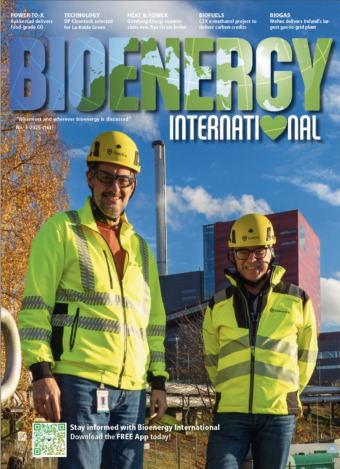In the United States (US), Natural Gas Vehicles for America (NGVAmerica) and Coalition for Renewable Natural Gas (RNG Coalition) have revealed that 53 percent of all on-road fuel used in natural gas vehicles (NGVs) in the calendar year 2020 was renewable natural gas (RNG). Of a 646 million gasoline gallon equivalent (GGE) total consumed, 301 million GGE was conventional natural gas while 345 million GGE was RNG. This is also a 25 percent growth of RNG usage for transportation compared to 2019.

Captured above ground from organic material in agricultural, wastewater, landfill, or food waste, RNG can produce carbon-negative results when fueling on-road vehicles like short- and long-haul trucks, transit buses, and refuse and recycling collection vehicles.
The California Air Resources Board’s (CARB) Q3 2020 data confirms that the energy weighted carbon intensity (CI) value of California’s RNG vehicle fuel portfolio in its Low Carbon Fuel Standard (LCFS) program is carbon negative and below zero at -17.95 gCO2e/MJ.
The use of RNG as a transportation fuel grew 25 percent over 2019 volumes, increasing 267 percent over the last five years. NGVAmerica and RNG Coalition report that in 2020 a total of 646 million gallons (GGE) of natural gas were used as motor fuel. Of that, 345 million gallons (GGE) were from renewable sources.
If we are going to have a meaningful and immediate impact on climate change and clean our urban air, we need cleaner trucks and buses on our roadways now. We can’t wait. RNG-fueled vehicles are the most immediate and cost-effective heavy-duty option when seeking to combat climate change and clean our air. Renewable Natural Gas fueled vehicles provide a proven and scalable net carbon negative / zero-emission equivalent solution for commercial deployment today said Dan Gage, President of NGVAmerica.
The use of RNG as a motor fuel in 2020 displaced 3.5 million tonnes of carbon dioxide equivalent (CO2e). Put into perspective, RNG motor fuel use last year eliminated CO2 emissions, equivalent to removing CO2 emissions from 394 million (US) gallons (≈ 1.49 billion litres) of gasoline consumed.
Renewable natural gas supply is growing. With 157 RNG production facilities transforming waste into fuel, and another 155 facilities on the way, we are increasingly able to affordably offer consumers the opportunity to decarbonize with RNG – the cleanest of any fuel available today, said Johannes Escudero, CEO of Coalition for Renewable Natural Gas.


